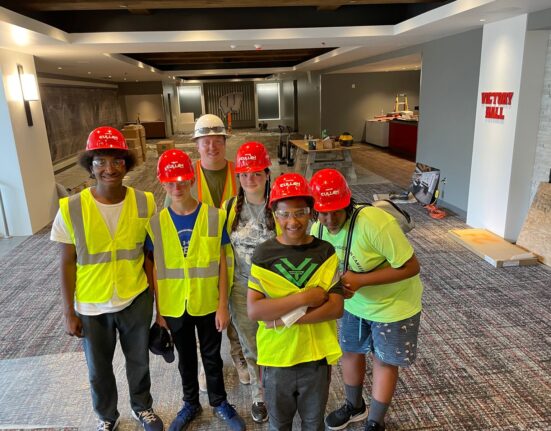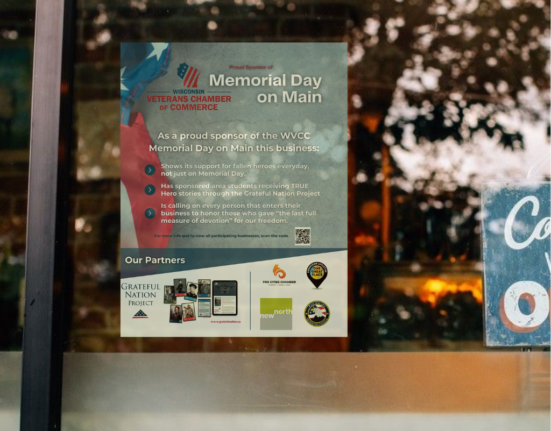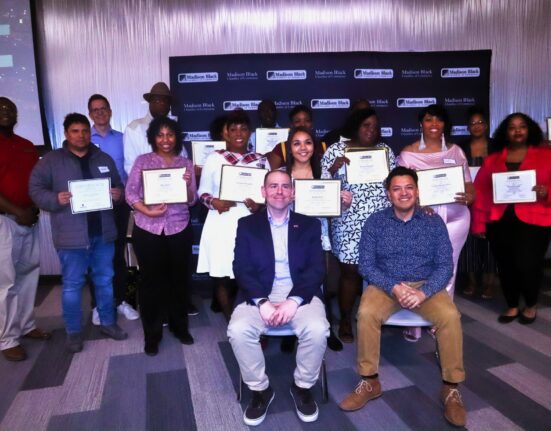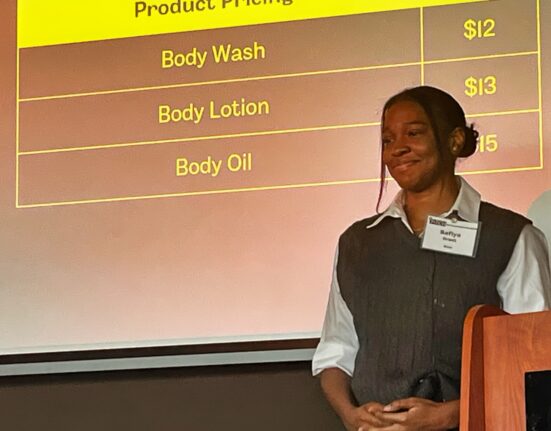
Shaundel Spivey never intended to get into the pizza business.
Sure, he had some culinary experience and even some training. But for the past several years he’s been focused on building BLACK, a youth-focused nonprofit organization in La Crosse, Wisconsin.
BLACK — Black Leaders Acquiring Collective Knowledge – has provided programming for youth and young adults since 2015, got official nonprofit status in 2016 and did its first major event in 2018 – an educational tour of the south.
“We flew 40 students out. We went to Atlanta, we had a bus there and then we took the bus to North Carolina, South Carolina, Virginia, DC, Maryland. A large part of that trip was focusing on the STEM fields, science, technology, engineering, mathematics, arts, and also Black history.” The students also visited a number of HBCUs.
The organization and the youth spent a lot of time in the community raising roughly $75,000 to fund that trip. Just that fundraising effort, along with the trip itself, raised awareness in the community.
“The community had eyes on us” after the youth returned, Spivey said.
It was around then that BLACK staff and board members started thinking about finding a permanent home base. They’d worked with other organizations to host meetings and events, but really wanted to own their own space. The pandemic put a bit of a pause on the idea, but it became one of Spivey’s priorities when he became executive director in 2021.
“It shows that we’re here to stay, you know, that we’re not just another organization that will fade away,” Spicy said. “Having your own space really heightens the work, and the confidence in the organization and the community. It also shows donors and funders that you have a stake in the community.”
But it had to be the right space.
“There were a lot of conversations that had to happen. You don’t want your space to mimic other spaces,” Spivey said. “We could get a big building and create a gym and do all that stuff. But the Boys and Girls Club already has that, the YMCA already has that … the reality is we just needed enough space to be able to bring students together, have our classes or our group meetings and things like that.”
Location was also important – given the geography of La Crosse and its narrow north-south orientation along the Mississippi River, it was important to Spivey that the building be relatively centrally located so as to remain accessible to students on both ends of the city.
Earlier this year, a board member got wind of a building that would check all the boxes at 1205 Redfield St. But there was a bit of a catch – it was the headquarters of Mama K’s Pizza, a frozen pizza manufacturer and distributor. Anybody who bought the building would also have to buy the business.

While a couple of BLACK’s board members were skeptical, Spivey saw it as an opportunity.
First, the business could provide steady revenue for the organization. It had been successful making pizzas one day a week and distributing to grocery stores in Wisconsin, Minnesota and Iowa; the owners simply wished to retire.
Spivey said the idea of a nonprofit owning a business might seem outside the box, but might be something other organizations look to.
“As a nonprofit, you sustain yourself by diversifying your funding,” Spivey said. “And I think that sometimes … when we hear ‘diversifying funding,’ we still hold ourselves to this idea of donors, grants, contracts, right? And we don’t really think (about) what business ventures we can do.”
Before moving forward, though, Spivey and his team looked into not only the food service business and what kinds of licenses that would entail, but also the structure of the business itself.
“One of the things that I’ve learned is that nonprofits can own LLCs but LLCs cannot have nonprofits. Didn’t know that,” Spivey said. “We had a lot of folks as a part of these conversations because I just wanted to make sure that I wasn’t doing anything wrong.”
The other wrinkle was that the building also has an apartment on top – another potential source of revenue which also required some education around the legalities and best practices of being a landlord as well.
“The goal is that every area and aspect of this building definitely has to contribute to the work that we’re doing as an organization and the community,” Spivey said.
Eventually, Spivey was able to convince the board that it all could work out, and BLACK closed on the building with a grant from Franciscan Sisters and began moving in last month. They hired Che Allen to manage the pizza business, where even administrative staff of the nonprofit pitch in putting toppings on pizzas when necessary.

“The goal is to now expand the business … take the time we need to learn it and figure out what exactly we want to do, what changes we want to make, but then work on a plan to expand so it does bring in enough revenue,” Spivey said.
Spivey also identified opportunities beyond revenue. BLACK just signed a lease with a new tenant for the apartment last week, but Spivey hopes eventually the apartment itself could become a transitional housing resource. Additionally, he hopes the business can become a workforce development center of sorts.
“What we want to do with the business is create a workforce program,” he said. “Essentially, we would be hiring teens and young adults in those roles. And then we would work with them and do job skills building … resume building and talk about cover letters and interviewing and even college if that’s where students are leaning towards, things that will give them the skills for them to be employable.”

Spivey said a capital campaign to improve and potentially even expand the building will be coming soon.
Moving into the new space isn’t the only thing that’s kept Spivey and his team busy; BLACK recently hired a community health worker through a federal grant and will host its annual Black Youth Summit at Viterbo University on Saturday.”I’m hoping – well, I’m knowing – that we made the right decision in purchasing this space,”
Spivey said. “And now the hope and the idea would be that it grows enough to really sustain and have longevity in this work.”






